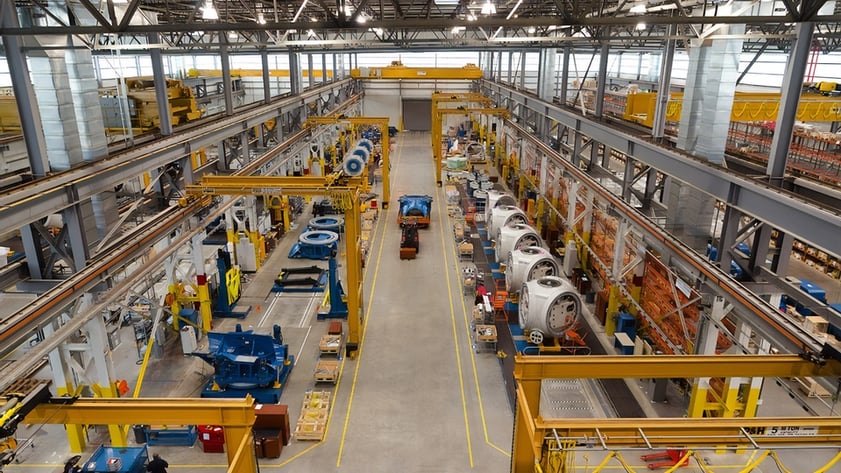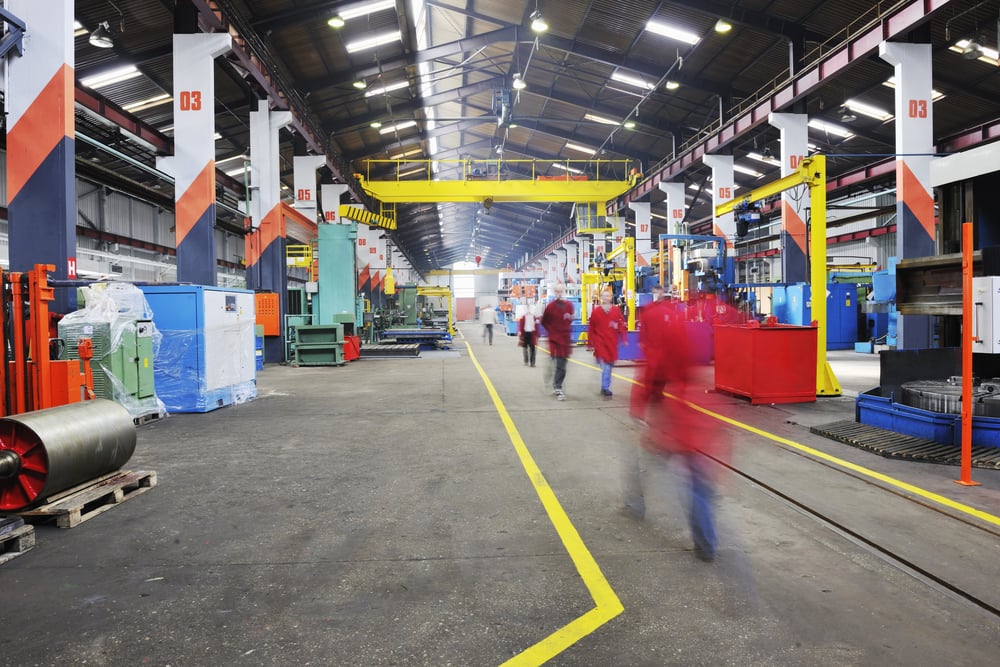SYSCON PlantStar BLOG
Five Things To Know About Manufacturing’s Digital Transformation
Aug 26, 2021 4:00:00 PM / by PlantStar Team

A series of technical advances are amalgamating to provide manufacturing companies with the opportunity to dramatically improve their operations, a movement dubbed digital transformation. The Internet of Things (IoT), data analytics, and artificial intelligence augment Manufacturing Execution Systems (MES), so suppliers increase production, boost productivity, reduce operational costs, streamline their supply chains, and transform their operations from dumb to a Smart Factory, the foundation for next generation manufacturing, Industry 4.0.
Here are five things manufacturers should know as the digital transformation continues.
1. A Need to Invest in Technology
Manufacturers are under constant pressure to increase profitability. In fact, more than 33% of manufacturing CIOs say growth is a top priority for them, according to the International Society of Automation.
Technology offers suppliers such an opportunity, so many suppliers are investing in it. The manufacturing digital transformation market was valued at $263.93 billion in 2020 and is expected to reach $767.82 billion in 2026, a Compound Annual Growth Rate (CAGR) of 19.48%, according to Mordor Intelligence.
The troika of emerging technologies, Internet of Things (IoT), data analytics, and artificial intelligence, are becoming the catalyst for dramatic market changes by adding intelligence to traditionally dumb factory equipment, such as sensors. As a result, suppliers gain more visibility into their supply chain and production processes, collect performance information, see usage trends in real time, and maximize their factory equipment investments.
2. Internet of Things Delivers Plant Insights
Computer technology constantly becomes smaller, more powerful, and simpler to operate. IoT represents the latest diminutive product category. It offers manufacturers the ability to deploy a new generation of small, intelligent sensors that track a wide range of plant and equipment variables, such as temperature, moisture, proximity, levels, images, and device wear and tear. Consequently, the Global IoT In Manufacturing Market size was valued at $20.23 billion in 2019 and is projected to reach $147.49 billion in 2027, growing at a CAGR of 28.2%, according to Verified Market Research.
3. What is Artificial Intelligence?
Artificial Intelligence is a term that emerged decades ago to describe actions that computers take that possess the same characteristics as human intelligence, some degree of reasoning. Such solutions can be programmed to perform a range of activities, for instance, automatically sifting through a series of alerts, identifying a potential supply problem, and then taking steps, such as ordering an item from another system, to alleviate potential issues. Because of the benefits, AI use in the manufacturing space is expected to grow from $513.6 million in 2017 to $15,273.7 in 2025, a CAGR of 55.2%, according to Allied Market Research.
4. Data Analytics Makes Sense of Volumes of Information
Because of the recent advances, manufacturers collect oodles of information. In fact, the world’s data will increase from 33 zettabytes (1 zettabyte equals 1 trillion G bytes) in 2018 to a 175ZB by 2025, a CAGR of 61%, according to International Data Corp. (IDC).
But collecting information is only a first step into how energy companies can exploit it. Data analytics solutions allow executives to correlate and leverage information to improve operations. According to Research and Markets, data analytics in the manufacturing industry is set to exceed $4.5 billion by 2025.
5. MES is a Transformation Cornerstone
MES, which has been in use for decades—has become an enabler of digital transformation. These systems generate real time data, so managers make decisions that improve shop floor performance.
MES keeps extending its reach, so typical applications today include:
- Planning and scheduling for the manufacturing or operations environment (including batch management, where applicable)
- Workflow and process management, quality management, energy management, and track and trace
- Manufacturing intelligence applications, such as analytics and digital dashboards.
Suppliers are taking these features and layering IoT, AI, and data analytics on top of MES Digital Manufacturing to gain more insight into and control over their operations. A lot of emphasis with the manufacturing digital solutions revolves around predictive analytics. Here, companies collect past performance information and use it to predict the future. These solutions detect variances in cycles and sub-cycles and reveal exactly which part of the cycle is causing a problem or about to create one. The goal is to flip maintenance from reactive to proactive. Rather than wait for a device to break down, the manufacturer tunes it, so it runs longer.
To date, most businesses receive a positive ROI from their MES-related digital transformation investments, according to the International Society of Automation. The top value received were in the areas of production performance improvements (which are usually measured) and cost reductions.
Manufacturing is at an inflection point. Suppliers are leveraging new technology to enhance their operations dramatically. By adding IoT, AI, and data analytics to MES solutions, suppliers gain the tools needed to compete successfully in today’s highly competitive global markets.
Topics: Industry 4.0
Subscribe to Email Updates
Posts by Topic
- Manufacturing Execution Systems (34)
- manufacturing solutions (16)
- MES 101 (12)
- Industry 4.0 (10)
- improve efficiency (9)
- mes software (9)
- mes solutions (9)
- Plastic Molding (8)
- Plastics Technology (8)
- Shop Floor Production (8)
- MES hardware (7)
- digital transformation (7)
- Reduce scrap (6)
- data-driven-decisions (6)
- lean manufacturing (6)
- process monitoring (5)
- product quality (5)
- Medical molding (4)
- lights-out manufacturing (4)
- manufacturing dashboard (4)
- production monitoring (4)
- Shop Floor Safety (3)
- supply chain management (3)
- ERP integration (2)
- Injection Molding Technology (2)
- defect collection (2)
- machine mes (2)
- process variables (2)
- digital strategy (1)
- labor gap (1)
- throughput (1)
Related Articles


